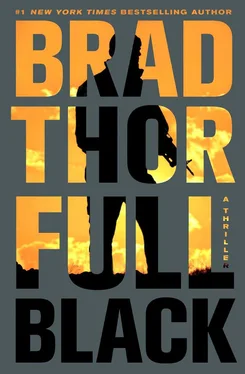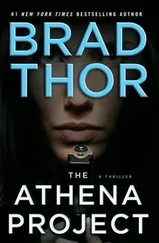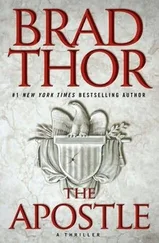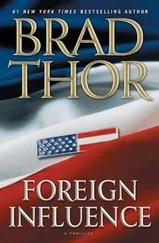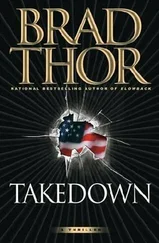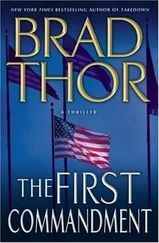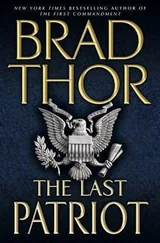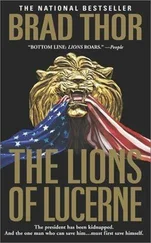Brad Thor - Full Black
Здесь есть возможность читать онлайн «Brad Thor - Full Black» весь текст электронной книги совершенно бесплатно (целиком полную версию без сокращений). В некоторых случаях можно слушать аудио, скачать через торрент в формате fb2 и присутствует краткое содержание. Жанр: Триллер, на английском языке. Описание произведения, (предисловие) а так же отзывы посетителей доступны на портале библиотеки ЛибКат.
- Название:Full Black
- Автор:
- Жанр:
- Год:неизвестен
- ISBN:нет данных
- Рейтинг книги:5 / 5. Голосов: 1
-
Избранное:Добавить в избранное
- Отзывы:
-
Ваша оценка:
- 100
- 1
- 2
- 3
- 4
- 5
Full Black: краткое содержание, описание и аннотация
Предлагаем к чтению аннотацию, описание, краткое содержание или предисловие (зависит от того, что написал сам автор книги «Full Black»). Если вы не нашли необходимую информацию о книге — напишите в комментариях, мы постараемся отыскать её.
Full Black — читать онлайн бесплатно полную книгу (весь текст) целиком
Ниже представлен текст книги, разбитый по страницам. Система сохранения места последней прочитанной страницы, позволяет с удобством читать онлайн бесплатно книгу «Full Black», без необходимости каждый раз заново искать на чём Вы остановились. Поставьте закладку, и сможете в любой момент перейти на страницу, на которой закончили чтение.
Интервал:
Закладка:
“Do you have any beer?” asked Harvath.
“Do I look like I’ve suddenly turned into a beer drinker?”
Though a man of diminutive stature, Nicholas had perhaps the best taste of anyone Harvath had ever met. From clothes to wine and food, Nicholas was a connoisseur of all the good things life had to offer-and that included beer. Harvath had sat and drunk with him before. “Seriously, you don’t have any beer?” Harvath asked.
“It was hard enough getting the wine in here without Carlton knowing. Five percent per volume versus twelve. You do the math.”
Wine packed a stronger punch than beer. Harvath got it. He settled on a Red Bull instead and closed the fridge door.
“I thought you didn’t drink that stuff anymore,” said Nicholas.
“Only in emergencies,” he said, popping the lid and rolling a chair over. “Like when there’s no beer.”
Nicholas smiled and made room for him. “How’s Chase? I heard he got shot in the shoulder.”
“Bicep,” Harvath corrected, pointing at his own. “I think it hit the bone. He’ll be riding the bench for a while. So,” he continued, changing the subject, “the Old Man says you’ve made some progress?”
“I have,” replied Nicholas, as he pulled up an instant message screen and typed a note to the Old Man that Harvath had arrived.
“Is he still in the office?”
“Yeah. He wanted me to let him know when you got here so we could go over everything together.”
“While we’re waiting for him, why don’t you give me the thirty-thousand-foot view of the situation?”
Nicholas nodded and turned back to his computers. Moving his little fingers across the keyboard, he brought up a series of images on the screens around the SCIF. “In the early 1990s, the Chinese watched in utter fascination at how rapidly the United States defeated Saddam Hussein in the first Gulf War.
“They realized that there was absolutely no way they could ever meet the technologically advanced American military on the conventional battlefield and win. They also realized something else. As they studied how the United States had waged its wars, they saw that leaps in technological innovation drove innovation in American military tactics. Not the other way around.
“The Chinese considered this quite a profound discovery and began to embrace the idea that in a China-versus-America conflict, the inferior China could beat the superior United States. In fact, China’s defense minister, General Chi Haotian, even stated that war with the U.S. was inevitable and that China would not be able to avoid it. He posited that the key issue for the Chinese armed forces was going to be controlling the initiative, or how the war would be fought. It would all come down to how each side approached waging war. China knew exactly what their plan would be. Their blueprint became known as unrestricted warfare.
“The first and most important rule of unrestricted warfare is that there are no rules. Nothing is forbidden. The plan calls for merciless, unconventional out-of-the-box thinking. The key is asymmetrical attacks on every sphere of American life-political, economic, and social.
“Using the ancient martial doctrines of leaders like Sun Tzu, they focused on the time-proven methods of surprise and deception, particularly by weaponizing civilian technologies and employing them without morality, mercy, or limit in order to crush American society.”
“What do you mean by weaponizing civilian technologies?” asked Harvath.
“What is one of the most important technologies that touches every single home and business in America?” said Nicholas.
Harvath thought about it for a moment and replied, “The Internet.”
“You are correct, but the Internet is the second most important. The first is electricity. If electricity were weaponized, meaning an opponent had found a way to use it against the United States, America would be devastated. Without electricity, fuel doesn’t get pumped, trucks don’t move, food and drugs don’t get delivered, the economy comes to a grinding halt. As the economy grinds to a halt, society starts to break apart. Fires don’t get extinguished, looting and crime doesn’t get stopped, you pick up the phone to dial 911 and there is no dial tone. Soon there are no police, there are no firemen. All there is, is chaos.
“With power grids and power stations so dependent on the Internet, I would argue that losing the Internet to an army of hackers would have the same effect as an enemy turning off our electricity, either through widespread sabotage or with an electromagnetic pulse weapon.
“The Chinese military leaders who developed the unrestricted warfare plan explained that in the realm of low-intensity conflict, the vulnerabilities of the United States actually become exponentially more pronounced. In essence, there are multitudes of things that U.S. citizens believe are harmless that a clever enemy could turn against them and use to cripple them in a heartbeat.
“The blackout of 2003 hit eight U.S. states and parts of Canada. Not only was power generation and delivery affected, but so were the water supply, transportation, communication, industry, and the overall economy. There was also looting. The overall cost was estimated at between seven and ten billion dollars.
“The outage affected more than fifty-five million people and was the second most-widespread electrical blackout in history. And I’ll give you one guess who was behind it.”
“The Chinese,” said Harvath.
Nicholas nodded. “Forensic investigations showed that PLA-sponsored Chinese hackers, or crackers as they’re referred to, had hacked into a U.S. electrical power system network that controlled distribution to the Northeast and were mapping it. It has been privately alleged that they were leaving behind hidden, malicious software, known as Trojan horses, that could be activated at a later date, specifically in a time of unrestricted warfare, in order to knock American power systems offline. Where it went wrong, supposedly, was that while leaving the Trojans, some cracker or group of crackers accidentally activated theirs, causing the blackout.”
“You don’t believe that?”
“It’s possible that the crackers made a mistake. Subsequent investigations of networks across the United States showed widespread compromise of the nationwide electrical system by the Chinese. Trojans had been planted everywhere.”
“If that’s true, why didn’t the U.S. confront China over it?”
“These kinds of things are very difficult to prove. Senior government and intelligence officials didn’t want to rock the boat with China unless they could prove it beyond a doubt.”
Harvath shook his head. “People have no idea how dangerous that country is-our politicians included.”
“I agree,” replied Nicholas. “At least eleven people died because of the blackout, and it contributed to the fall of the Ontario government in a provincial election. And it only lasted a couple of days.
“The impact on national security was just as serious. Without power, critical systems used by the United States to detect illegal border crossings, port landings, and breaches of sensitive sites were all compromised. Even more disturbing was that the blackout was a neon sign for terrorists, if you will, pointing right at one of America’s greatest Achilles’ heels.”
“Makes me wonder if it really was a mistake by the Chinese, or a dry run.”
“Indeed. The only way to be sure of your hypothesis is to test it. If the 2003 blackout was a test, it was successful, but it exposed all the Trojans they had planted throughout the U.S. electrical system.”
“Unless that was intentional,” said Harvath. “If they triggered the 2003 blackout on purpose to see what would happen and how we would respond, they had to have known we’d do a comprehensive analysis of all of our networks to see how badly we’d been penetrated. Maybe they intended for us to find all of those other Trojans. We find them, clean them out, and thank God we got them before they could be activated as well.”
Читать дальшеИнтервал:
Закладка:
Похожие книги на «Full Black»
Представляем Вашему вниманию похожие книги на «Full Black» списком для выбора. Мы отобрали схожую по названию и смыслу литературу в надежде предоставить читателям больше вариантов отыскать новые, интересные, ещё непрочитанные произведения.
Обсуждение, отзывы о книге «Full Black» и просто собственные мнения читателей. Оставьте ваши комментарии, напишите, что Вы думаете о произведении, его смысле или главных героях. Укажите что конкретно понравилось, а что нет, и почему Вы так считаете.
